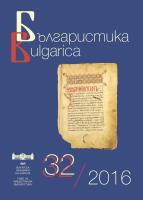
We kindly inform you that, as long as the subject affiliation of our 300.000+ articles is in progress, you might get unsufficient or no results on your third level or second level search. In this case, please broaden your search criteria.

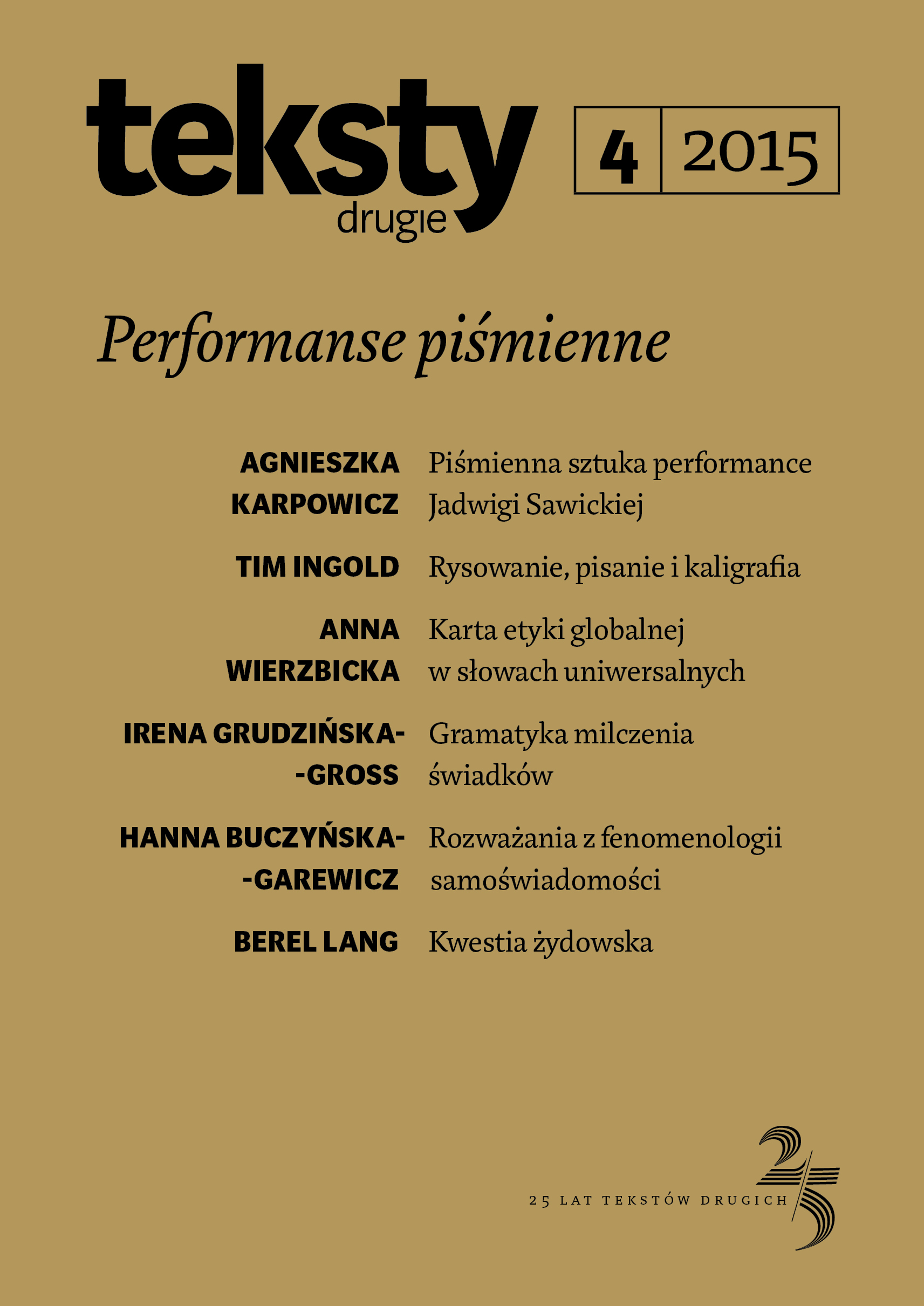
Parfianowicz-Vertun examines the role of literacy practices and verbal creativity in Czech underground culture. She focuses on ways in which underground artists used writing and the written words; the tension between writing and alternative culture, which was largely based on the spoken word; as well as situations in which the act of writing became a performance of sorts. The article explores various aspects of underground culture: music, poetry, fine art and samizdat publishing.
More...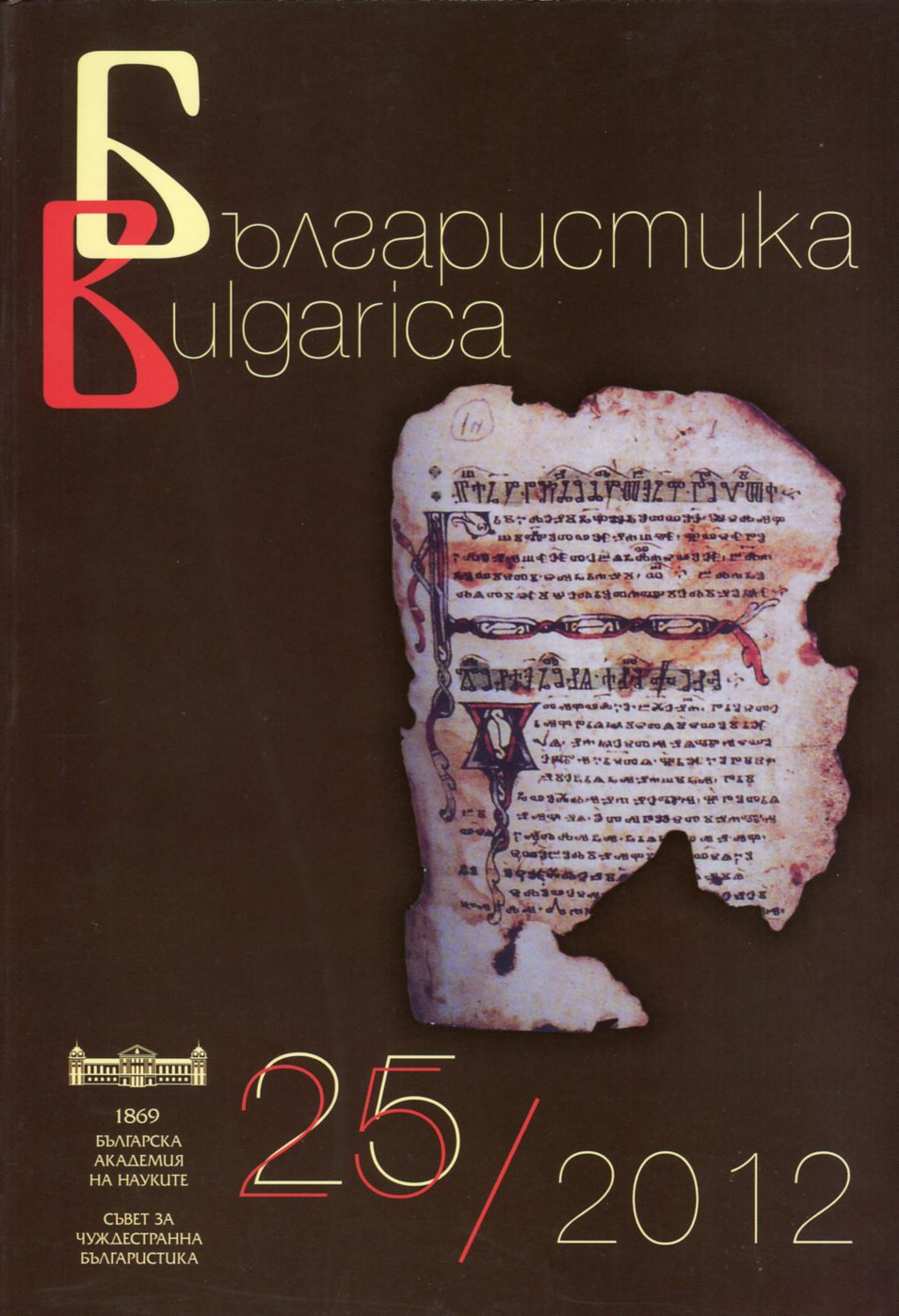
Selected bibliography in the field of Bulgarian Studies published in the current year
More...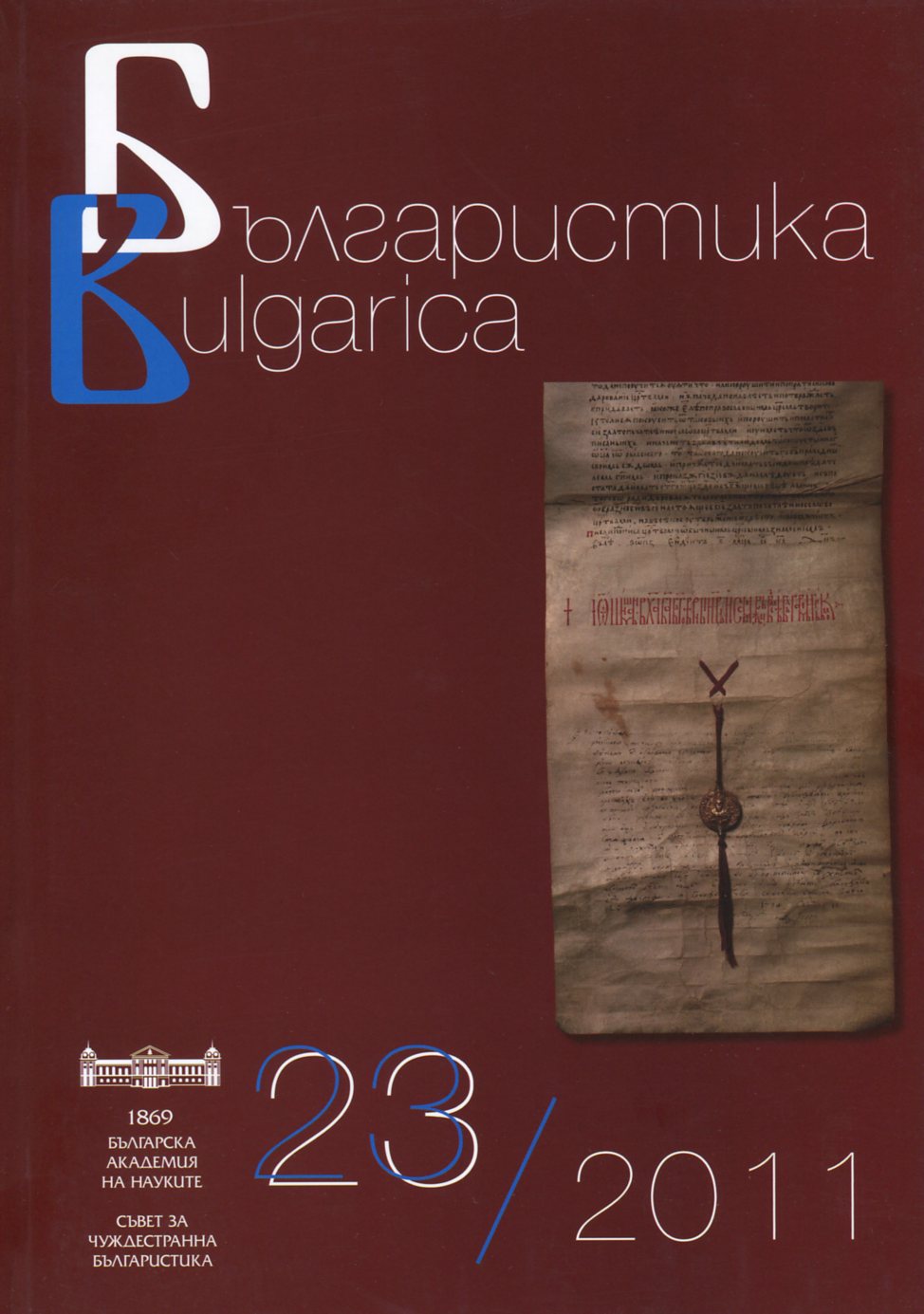
Defended PhD theses in Bulgaria in the field of linguistics, literature, history, folklore, ethnography and art studies
More...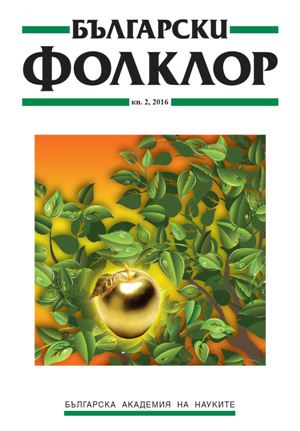
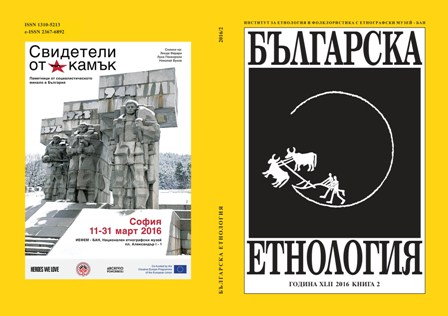
By using the methods of the ethnological research, the present article presents the dynamic of the state of the Bulgarian community in Chicago and its manifestations,as well as the reasons behind the designation of Chicago as the „Bulgarian city“not only by the local Bulgarian group but by the „others“ as well – the society, the authorities and the media in the United States. The study focuses on the spaces ofthe Bulgarians in Chicago and the metropolis, the representative institutions of thecommunity – its churches, schools, cultural and public institutions, the media, thefeasts, the events as well as the places of memory. As a certain manifestation of self-confidence and successful integration of the local Bulgarians in the multiculturalenvironment of Chicago, the article analyses also the book „Chicago – the BulgarianCity“ in which the Bulgarian community describes and identifies itself. This book as well as the examination of the social life and cultural activities of the Bulgarians in Chicago and the suburbs show that the diaspora is interwoven in the American social structure but at the same time maintains its own parallel structure which fits the American nation with its specific character.
More...

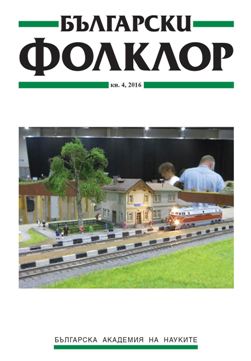
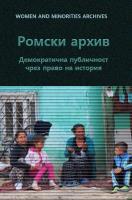

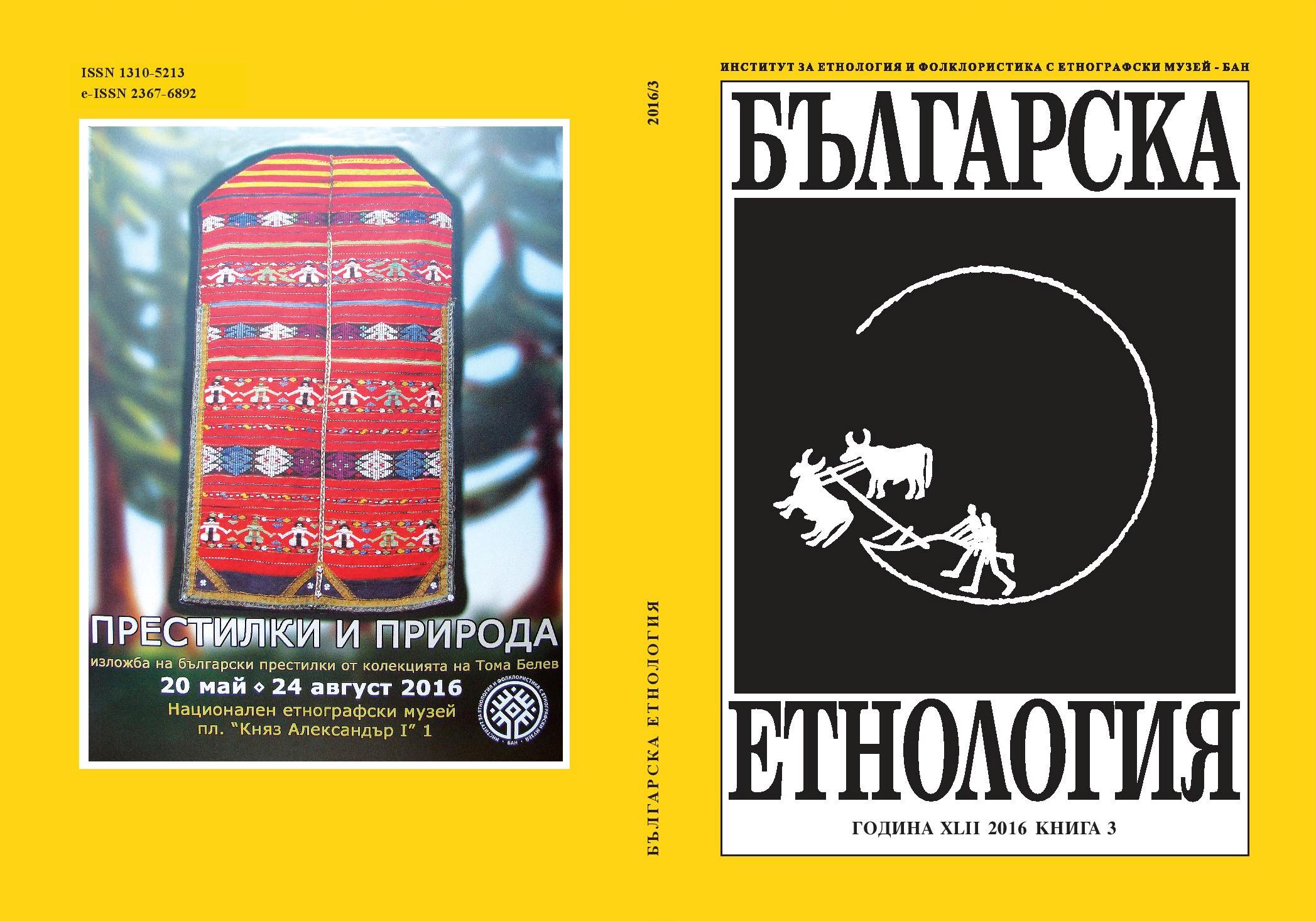
Marcel Mauss’ works on the social facts of sacrifice, gift and pray formed the fundamental concepts and theories for anthropological studies about the reciprocity between humans and gods and the contract principal in gift exchange. This paper will focus on a sacrificial ritual to mountain god in a Tibetan tribe and discuss the relations between the three concepts, to illustrate that in this kind of ritual, although sacrificesare nonliving beings rather than animals, the intensity of other steps still stay at asimilar level with classical sacrificial ritual with animal sacrifices; and in the ethics of reciprocal principal, the form of gift exchange in this sacrificial ritual shows obvious „merit“ and „karma“ values which has representativeness in Buddhist societies.
More...
This article discusses the role of gifts and hospitality in Bulgarian peasant tradition in the context of peasant society structure: small and middle size family households organized to overcome difficulties and constraints of an underdeveloped society of „communal capitalism“ where most of the young people could not enter labor market outside villages. Overpopulation results in specific strategies of economic behavior: family members worked to make their households most productive through their efforts, mutual aid between village families in critical moments of agricultural cycle, as well as intensive social interaction in the most important social events in peasant communities: birth, wedding, rites of passage, funerals, calendar customs, rites and holidays, etc. All of them contained gifts exchanges and hospitality that reflect relative social equality and regular exchange of services between families. Most archaic gifts – oral blessings and actions, presented by ritual groups („koledari“, „survakari“, „kukeri“, etc) are directed to positive influence on actual and future fruits of nature and humans health. They are exchanged for material gifts and hospitality. Collective participation in gift exchange and hospitality includes rites aimed to overcome critical moment in the families and villages: long illness or epidemics. All the collective rituals expressed unity against social and natural crises.
More...
The article is dedicated to one of the important moments in the wedding custom inBulgaria – the offering. It traces the ways in which since the second half of the 20thcentury the authorities try to influence the traditional forms of offering. The researchshows the differences in offering in the towns and villages and presents the reasonsfor them. It outlines the main trends in the last tree decades in the exchange of giftsbetween the newly-married couple and the guests which are characterized by theintensive penetration of foreign models.
More...
The article presents in chronological order the donations which have come in thespecialized ethnographic archive of the Institute of Ethnology and Folklore Studieswith Ethnographic Museum. It analyzes the dynamics of the donations, their thematiccontent, territorial range, and the motivation of the donors as well as traces the processof transformation of the personal documents into public socially significant culturalfacts.
More...

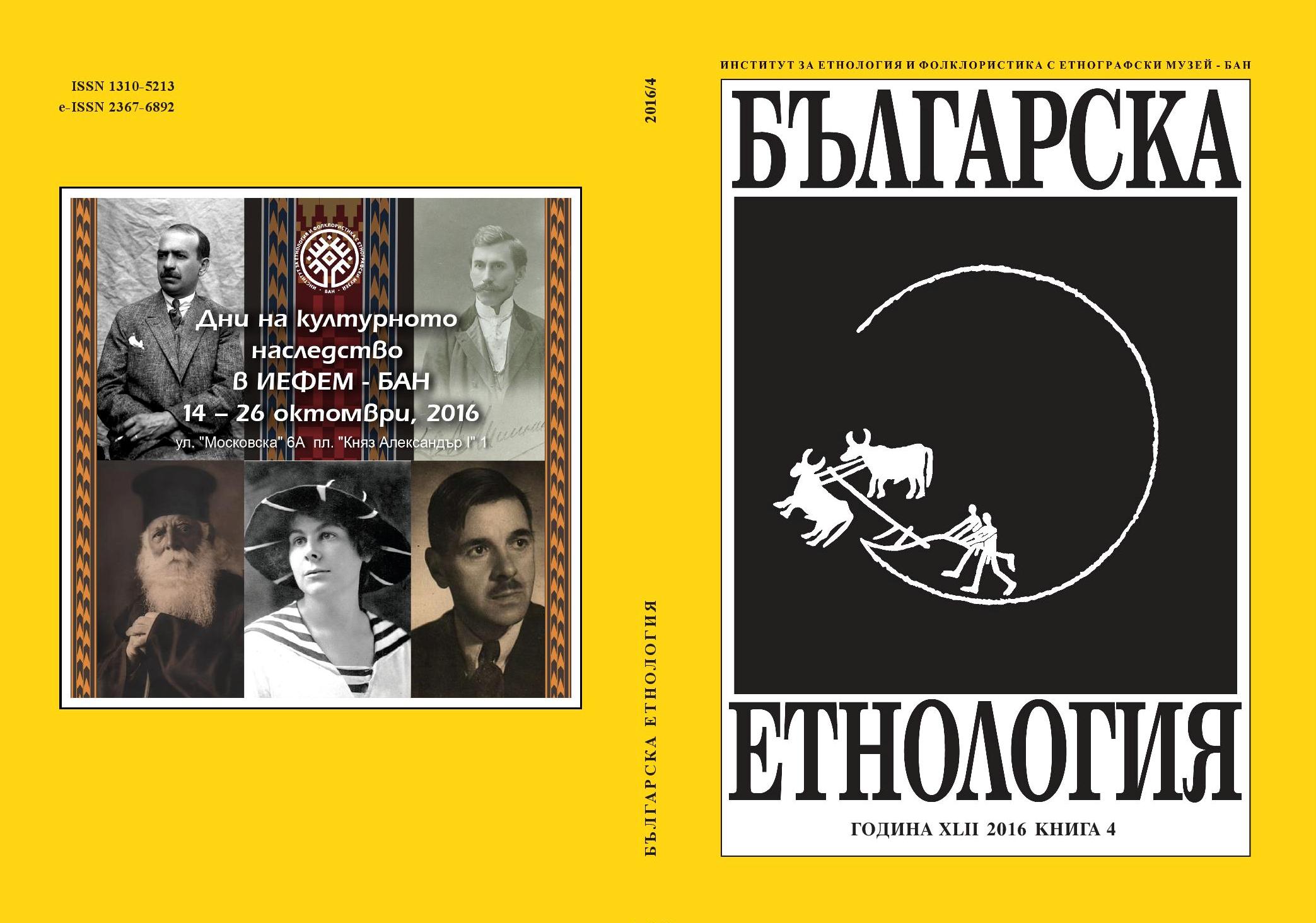
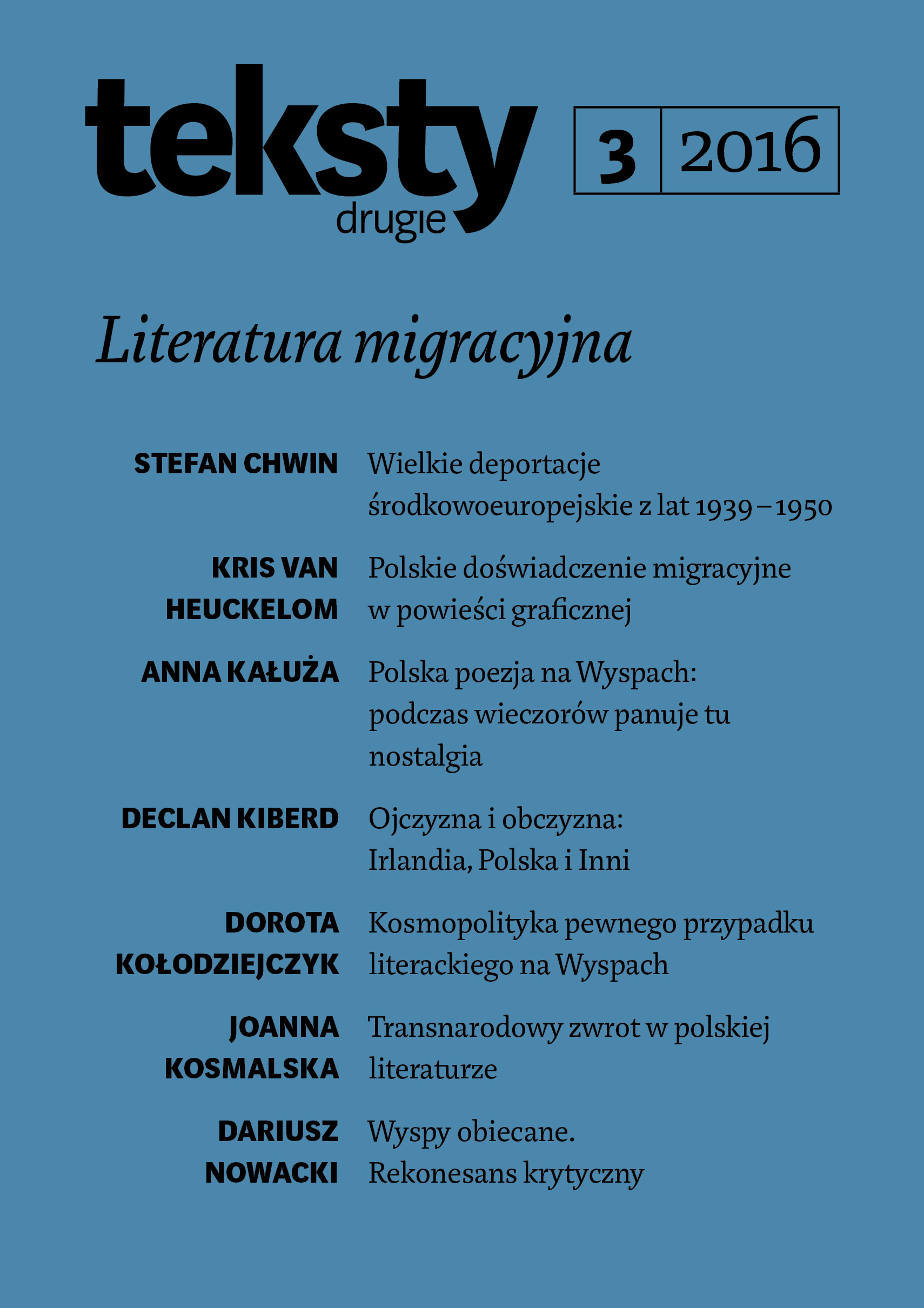
The article explores the shaping of narrators’ polyphonic identities in texts produced by Polish migrants temporarily residing in the UK and Ireland. Examining dozens of works produced between 2004 and 2015, Ślósarska tackles identity in relation to the fundamental determinants of self-narrative strategies. Her methodology is rooted in symbolic interactionism, standard patterns of biographies, and self-narration as a way of understanding and interpreting the world. Her conclusions focus on the function of self-narration in reconstructing individual and ethnic identities by migrants looking for new patterns of adaptation in unstable existential situations; the axiologization of the new experiences is discussed in relation to ethnic cultural memory and to the social and family identity roles developed earlier in life.
More...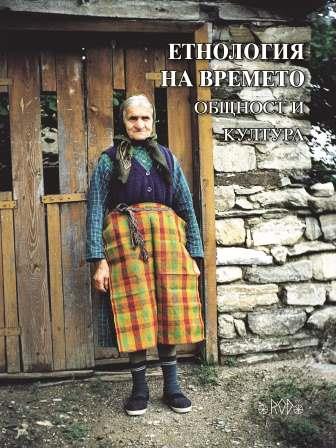
In 2019, a rather attractive festival was launched in the city of Levski, which is tied to the traditional city fair, gathering relatives and friends for more than a century. Organizers of the event are Levski Municipality and the Community center “Georgi Partsalev – 1901”, which always try to plan the event to be around August 28, when according to the old style, the town of Levski celebrates the feast of the Great Mother of God. The event, now in its fourth year, has become an emblematic celebration of culinary art. The culinary festival has a competitive nature as a jury with the chairman of the first edition was – Kateto Euro, and for the next three editions – Ivan Zvezdev, who chooses the winners.In 2020, the festival did not take place due to the Covid 19 pandemic, but from the following year, 2021, it was renewed. The purpose of the celebration of the town of Levski is to strengthen Bulgarian traditions, to attract friends and new people, to show the beauty and advantages of the Bulgarian nature, to look at the traditional dishes of our grandmothers and mothers. Holidays and festivals dedicated to food and drink are seen as part of the tools for constructing and transmitting collective memory and building local identity.
More...